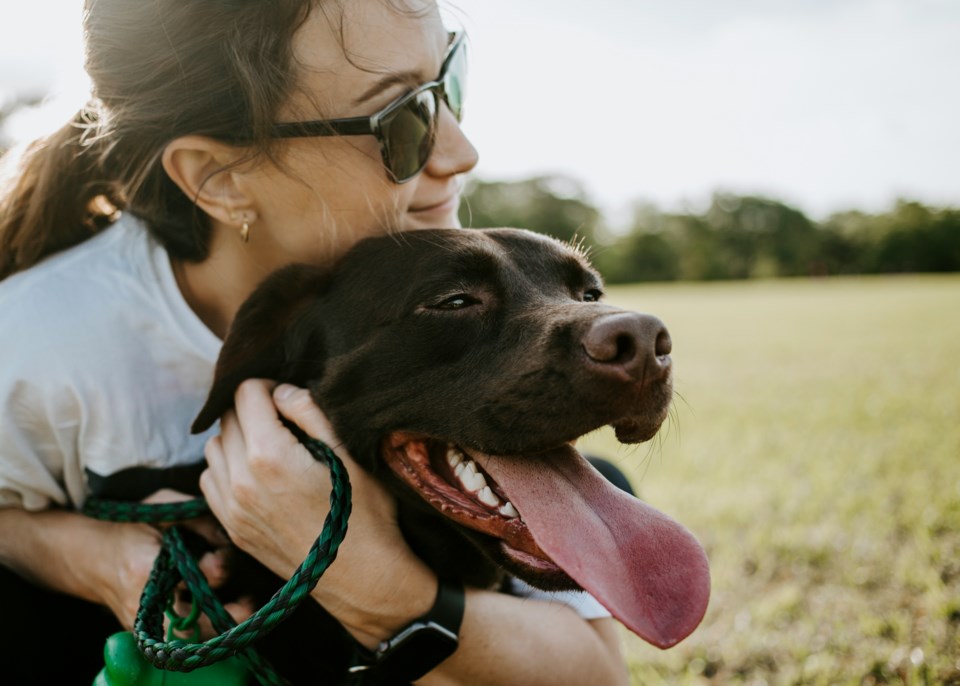It can be challenging to seek support let alone care for your pet while you try to take care of yourself but local agencies have banded together to help ease the barriers.
The Pets in Transition program started in 2018 and has seen considerable growth since then.
It helps women who experience violence an opportunity for them to get the support they need while their pets are being taken care of.
The program comes from a partnership between the Guelph Humane Society (GHS) and Guelph-Wellington Women in Crisis (GWWIC). In 2020, CMHA Waterloo Wellington joined and the programming expanded.
Now people who are hospitalized for mental health challenges can use the program so their pets are taken care of while they seek recovery.
The program is at no cost to those who access it.
Since 2018, Pets in Transition has helped 55 families and 92 pets. In 2022, 18 pets accessed the program and the number jumped to 38 pets in 2023.
It’s hard to pinpoint why there was an increase but with people who experienced struggles with mental health during the pandemic, and the current housing crisis that can put stress on people, these factors could play into a steady increase of people accessing the program, said Katherine Leonard, GHS manager of community programs and outreach.
It’s a foster-based program that is confidential and provides safe boarding with a foster family. Pets can be fostered for up to 12 weeks while their owners are unable to take care of them.
Cindy McMann, public educator at GWICC, was a volunteer in 2018 and helped get the program up and running. GWICC saw the need for a program like this for their clients. People had tried to keep pets in their cars, go back to unsafe situations to care for their pets and sometimes they wouldn’t go to women’s shelters because they worried what would happen with their pets.
In some cases people don’t have family and friends in their lives who can care for their pets while they access support. Sometimes people’s only options are to surrender their pet or not access the care they need.
“So where intimate partner violence is occurring we also see very high rates of violence towards animals as well. And so this has huge implications for the entire family who's been affected by violence,” said McMann.
It can be traumatic for a family experiencing violence and their pets too.
Sometimes pets are used as a form of coercion to try and get people to stay or do what they want, said McMann.
“So having this program really allows for people to get help for themselves, whether it be through receiving treatment for addiction or mental health, or if they're seeking safe shelter from a violent partnership,” said Leonard.
It’s not just dogs and cats that have been through the program but reptiles and amphibians. All pets are welcomed.
“Ultimately, whenever we see a pet reunited with their owner, and we see the joy on the owner's face and we see the joy in the pet as well. It's such a tremendously rewarding thing to be a part of, and we just feel very fortunate that we're able to help,” said Leonard.
The goal of the program is to reunite people with their pets.
“It's all about protecting that essential human-animal bond, which is so, so, so important,” she said.
Pets are an important part of people’s support system and for those who have mental health challenges pets play a valuable role, said Meredith Gardiner, director of services for CMHA WW.
The program can be used as part of a client’s care plan. It’s important that the things people care about are also taken care of so there are fewer barriers for people getting the help they need, she said.
Gardiner has heard from staff that Pets in Transition “has been the thing that's made the difference for people.”
Pets are family. We’re keeping families together by having a program like this in Guelph and Wellington County, Leonard said.
In terms of the program growing McMann would like to see people in rural areas who have animals like horses, chickens or cows that are part of their livelihood be able to access the program too.
“People who are in rural situations are facing those same barriers around not wanting to leave animals behind. But those barriers are just tenfold when it comes to large animals, because where can you put them?" she said.
Leonard is looking forward to seeing the program grow and hopes to expand partnerships with social service agencies in Guelph and Wellington County.


.png;w=120;h=80;mode=crop)
